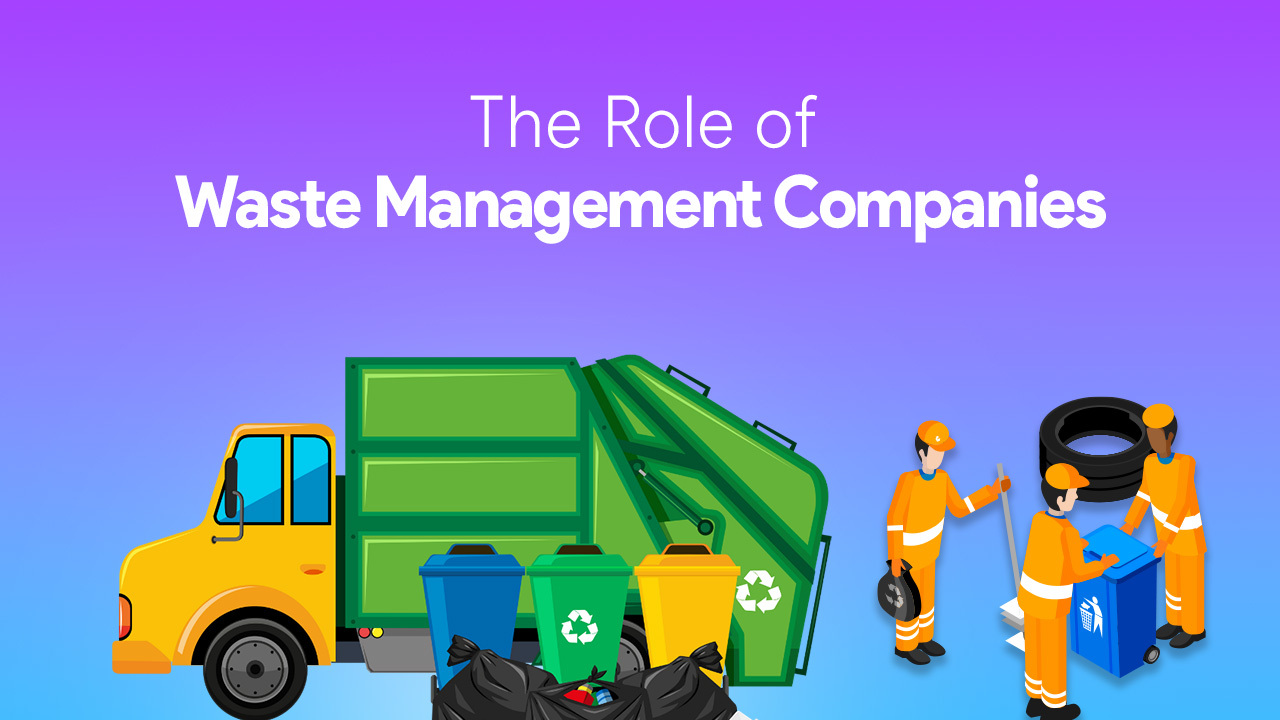
Sustainable Plastic Waste Management in India: The Role of Government and Waste Management Companies in Extended Producer Responsibility (EPR)

Introduction:
India faces a significant challenge when it comes to plastic waste management. With a growing population and increasing consumption, the country generates a massive amount of plastic waste, leading to environmental pollution and health hazards. To tackle this issue, the Indian government, joining hands with Waste Management Companies, has implemented a comprehensive approach known as Extended Producer Responsibility (EPR). In this blog post, we will delve into the role of the government and waste management companies in promoting sustainable practices through EPR Plastic Waste Management.
Understanding Extended Producer Responsibility (EPR):
EPR is an environmental policy approach that holds producers responsible for the entire lifecycle of their products, including their proper disposal and recycling. The government mandates that producers and importers of plastic products take responsibility for managing the waste generated from their products. This approach encourages producers to adopt eco-friendly designs, promote recycling, and minimize environmental impact.
Government’s Initiatives and Regulations:
The Indian government has taken several significant steps to promote sustainable plastic waste management through EPR. Some key initiatives include:
a. Plastic Waste Management Rules: The Ministry of Environment, Forest, and Climate Change introduced the Plastic Waste Management Rules, 2016. These rules outline the responsibilities of various stakeholders, including producers, local authorities, and waste management companies, in managing plastic waste.
b. Implementation of EPR Guidelines: The Central Pollution Control Board (CPCB) has issued guidelines for the implementation of EPR, setting out the roles and responsibilities of producers, importers, and recyclers. These guidelines ensure a systematic and organized approach to plastic waste management.
c. Awareness Campaigns and Education: The government, through various campaigns and programs, raises awareness among citizens about the importance of responsible plastic waste management. Educational initiatives target schools, colleges, and communities, aiming to instil sustainable habits and promote behaviour change.
The Role of Waste Management Companies:

Waste management companies play a vital role in implementing and executing sustainable plastic waste management practices. Their responsibilities include:
a. Collection and Segregation: Waste management companies are responsible for collecting plastic waste from various sources, including households, industries, and commercial establishments. They ensure proper segregation of different types of plastics to facilitate effective recycling.
b. Recycling Infrastructure: These companies invest in developing recycling infrastructure, including sorting and processing units, to convert plastic waste into reusable materials. They collaborate with recyclers and ensure the efficient transformation of waste into valuable resources.
c. Collaboration with Producers: Waste management companies work closely with producers and importers to establish effective channels for collecting plastic waste. They provide assistance in setting up collection points and facilitate the transportation of waste materials to recycling facilities.
d. Innovation and Research: To promote sustainable plastic waste management, waste management companies invest in research and development of innovative technologies. They explore advanced recycling methods, such as chemical recycling and upcycling, to maximize resource recovery and minimize environmental impact.
Benefits of EPR and Sustainable Plastic Waste Management:
The implementation of EPR and the collaborative efforts of the government and waste management companies bring about several benefits:
a. Resource Conservation: EPR encourages producers to adopt eco-friendly designs and promote recycling. By maximizing resource recovery from plastic waste, it conserves valuable resources and reduces the need for virgin materials.
b. Reduced Environmental Pollution: Proper plastic waste management prevents littering and reduces environmental pollution. Recycling plastic waste helps reduce the energy and water consumption associated with the production of new plastic.
c. Job Creation and Economic Opportunities: The establishment of recycling infrastructure and the promotion of sustainable plastic waste management create employment opportunities, especially in the recycling and waste management sectors. This contributes to economic growth and social development.
d. Circular Economy Approach: EPR fosters a circular economy by promoting the reuse, recycling, and upcycling of plastic waste. It shifts the focus from a linear “take-make-dispose” model to a sustainable approach that maximizes resource utilization.
Conclusion:
Sustainable plastic waste management in India requires a comprehensive and collaborative approach. The government’s implementation of Extended Producer Responsibility (EPR) and the active involvement of waste management companies play a crucial role in addressing the plastic waste crisis. By holding producers accountable for their products’ lifecycle, promoting recycling, and raising awareness, EPR initiatives contribute to a greener and cleaner future. The combined efforts of the government, waste management companies, and citizens are vital in achieving sustainable plastic waste management and preserving the environment for generations to come.
We Cercle X, a Digital Waste Management Company and help brands carry out their EPR plastic waste management responsibilities. Stay tuned for more informative blogs and updates from us. Together, let’s make a difference in waste management and create a cleaner, greener future.
If you have any objection to this press release content, kindly contact pr.error.rectification[at]gmail.com to notify us. We will respond and rectify the situation in the next 24 hours.


